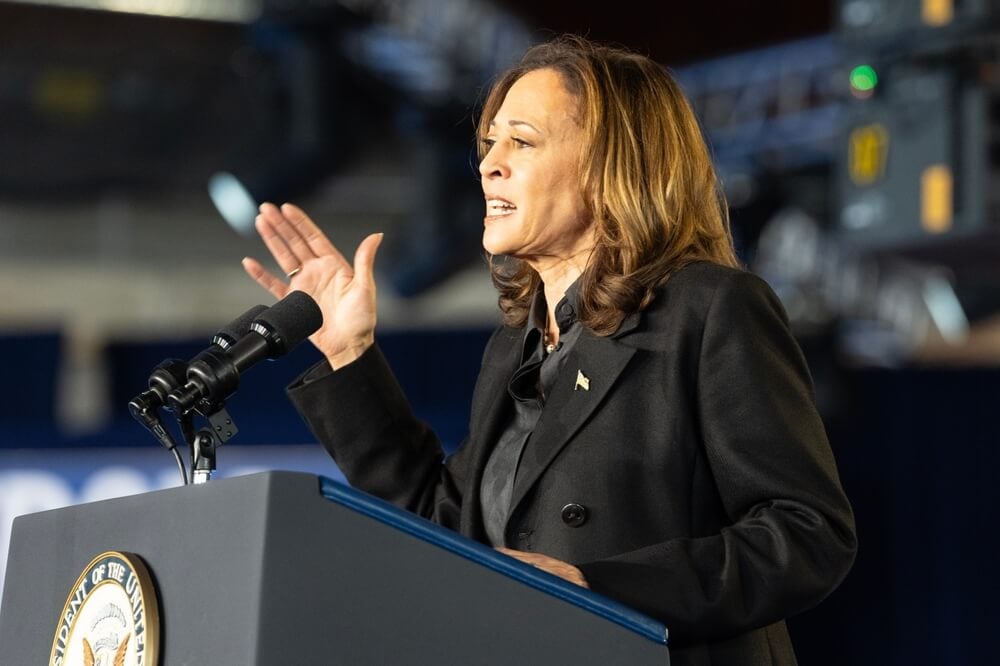Half of October is the period when there is no time left for the strategists of presidential campaigns to produce an event that would bring and maintain a decisive advantage for their candidate before November 5.
However, the tied race between Kamala Harris and Donald Trump provides both camps with an ideal opportunity to consider a decisive blow that would make a significant difference and leave the opponent unable to recover in the next three weeks.
Historical experiences justify these thoughts, as last-minute shifts have proven successful on multiple occasions. But the risk of the final punch going empty, or even backfiring, seems even greater.
Therefore, there is a high likelihood that this pre-election October will unfold without "October surprise," i.e., a sudden shift brought about by a significant move or event that significantly impacts the final election outcome.
Will the tradition repeat itself?
During the 1980 campaign, Republican strategists warned the media in advance to pay attention to the "October Surprise," hinting at a possible release of hostages in the US Embassy in Tehran, which would bring a decisive advantage to Democrat Jimmy Carter.
It did not happen. The hostages were released at the moment when Ronald Reagan took office. But since then, the "October Surprise" has hovered over the end of every presidential campaign.
This year's presidential campaign was full of surprises, but they seem to have run out before October even started
The collapse of Lehman Brothers in 2008 took place in mid-September, but the effects were "October" and undoubtedly contributed to Barack Obama's victory over John McCain. There have been similar examples since the 1980s.
This year's presidential campaign was full of surprises, but they seem to have run out before October even started.
Surprises were spent before October
One surprise happened right after the earliest TV debate in history, the one on June 27 between Donald Trump and Joe Biden. The current president was removed from the race, which has advanced significantly, because of his poor performance in the campaign, leaving the candidacy to Kamala Harris.
Trump then narrowly survived an assassination attempt in Pennsylvania last July. In September, while on the estate in Florida, he was also the target of an attack, which was successfully thwarted in time.
These events, by their very nature, have the potential to determine the outcome of the election race, but this did not happen. Trump and Harris are still, just three weeks before the election, almost tied.
 The decision by Kamala Harris' headquarters to have their candidate interview with Fox News on Wednesday suggests a greater willingness to take risks
The decision by Kamala Harris' headquarters to have their candidate interview with Fox News on Wednesday suggests a greater willingness to take risks
The staffs of both candidates are undoubtedly grappling with a dilemma: deciding whether to make a move at the end of the race that could potentially lead to a new "October Surprise."
Apparently, Republicans estimated that the arrest of a gunman in Riverside, California, last Saturday, near where Trump held a rally, had no potential to make it an "October surprise."
It would be the third similar situation in three months, and none of the previous two—not even the most dangerous one from last July—brought enough energy to change the game.
The decision by Kamala Harris' headquarters to have their candidate interview with Fox News on Wednesday suggests a greater willingness to take risks. This appears to be an attempt by the Democratic headquarters to gain a foothold in the opponent's territory towards the end of the campaign.
At the same time, it is a strategic move to mitigate negative perceptions resulting from VP Harris' prolonged reluctance to participate in critical interviews and press conferences.
Undoubtedly, a single interview may not possess the same impact as the "October Surprise," but it still carries a significant risk for the Democrats due to the limited time available for error correction.
Even a minimal risk is unacceptable
The high dose of risk that any idea of a strong blow entails at the end of the campaign is precisely why both candidates stick to the middle line, making it less likely that they will go on the offensive.
The conditions for preparing the "October Surprise" definitely exist. The aftermath of hurricanes Helena and Milton presented an opportunity for both candidates to score points, as did the events in the Middle East and tensions between China and Taiwan.
However, it appears that both of them responded to the events posed by nature and international crises with more caution than ambition.
In a situation of almost completely equal results, both camps understand the risk of a rating drop, even minimal, as unacceptable, so they concentrate on the battle for the minority of those undecided.
This election cycle is unlikely to see the production of "October Surprise" in any of the election headquarters kitchens
Large bodies of already decided voters warn that even a sudden, major event would not have too much impact, nor would it have enough time to greatly change the balance of power in just 20 days.
This election cycle is unlikely to see the production of "October Surprise" in any of the election headquarters kitchens. Only after the November 5 election will we know if the surprise happened and we just didn't notice it.